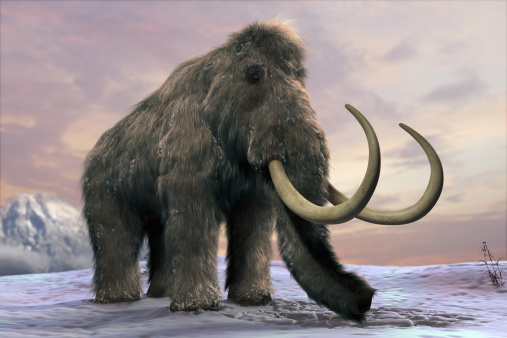
An international team of scientists has sequenced the whole genome of the woolly mammoth, a breakthrough that could help our understanding of why these hairy cousins of the elephant went extinct.
The last surviving population died out on an Arctic island called Wrangel off the coast of Russia some 4,000 years ago, 6,000 years after their relatives disappeared from mainland Siberia, reports the Los Angeles Times.
The researchers, who published their findings in the journal Current Biology on Thursday, compared the DNA from two woolly mammoths that had been frozen in permafrost: a juvenile male that lived in northeastern Siberia 44,800 years ago and a male from Wrangel Island that lived some 4,300 years ago.
“From a single individual you can get information about the entire population,” said co-author of the study, Eleftheria Palkopoulou.
Using the stem cells of a modern African elephant as the test, the team found that the population of woolly mammoths marooned on Wrangel Island was so small that the beasts had become inbred.
Though climate change and human intervention are often touted as factors, scientists aren’t entirely sure what caused the mammoth to die out and researchers wanted to see whether genetic features could be responsible.
The genetic data also showed there were two major population declines, one some 300,000 years ago and another around 12,000 years ago, at the end of the last Ice Age.
But scientists warn the lack of diversity in DNA from the Wrangel population does not necessarily mean genetics caused the mammoth to die out, and a closer examination of the data could help them understand how these creatures evolved and what sets mammoths apart from modern elephants.
More Must-Reads from TIME
- How Donald Trump Won
- The Best Inventions of 2024
- Why Sleep Is the Key to Living Longer
- How to Break 8 Toxic Communication Habits
- Nicola Coughlan Bet on Herself—And Won
- What It’s Like to Have Long COVID As a Kid
- 22 Essential Works of Indigenous Cinema
- Meet TIME's Newest Class of Next Generation Leaders
Write to Helen Regan at helen.regan@timeasia.com